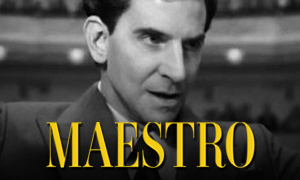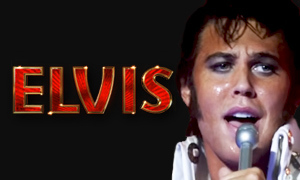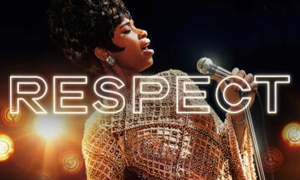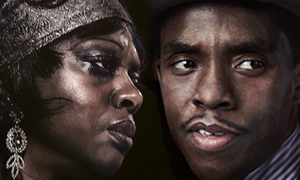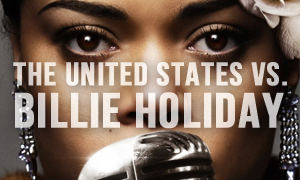Elvis (2022)
Austin Butler
Born: August 17, 1991
Birthplace:
Anaheim, California, USA
Elvis Presley
Born: January 8, 1935
Birthplace: Tupelo, Mississippi, USA
Death: August 16, 1977, Graceland, Memphis, Tennessee (heart attack)
Tom Hanks
Born: July 9, 1956
Birthplace:
Concord, California, USA
Colonel Tom Parker
Born: June 26, 1909
Birthplace: Breda, Netherlands
Death: January 21, 1997, Las Vegas, Nevada, USA (stroke complications)
Bio: Elvis' Manager
Olivia DeJonge
Born: April 30, 1998
Birthplace:
Melbourne, Australia
Priscilla Presley
Born: May 24, 1945
Birthplace: New York City, New York, USA
Bio: Elvis' Wife
Richard Roxburgh
Born: January 23, 1962
Birthplace:
Albury, New South Wales, Australia
Vernon Presley
Born: April 10, 1916
Birthplace: Fulton, Mississippi, USA
Death: June 26, 1979, Memphis, Tennessee, USA (heart failure)
Bio: Elvis' Father
Helen Thomson
Birthplace:
Australia
Gladys Presley
Born: April 25, 1912
Birthplace: Pontotoc County, Mississippi, USA
Death: August 14, 1958, Memphis, Tennessee, USA (heart failure)
Bio: Elvis' Mother
Kelvin Harrison Jr.
Born: July 23, 1994
Birthplace:
New Orleans, Louisiana, USA
B.B. King
Born: September 16, 1925
Birthplace: Berclair, Mississippi, USA
Death: May 14, 2015, Las Vegas, Nevada, USA (complications from type 2 diabetes)
Bio: American Blues Singer
Kodi Smit-McPhee
Born: June 13, 1996
Birthplace:
Adelaide, South Australia, Australia
Jimmie Rodgers Snow
Born: February 6, 1936
Birthplace: Canada
Bio: Country Music Singer Turned Minister
Dacre Montgomery
Born: November 22, 1994
Birthplace:
Perth, Australia
Steve Binder
Born: December 12, 1932
Birthplace: Los Angeles, California, USA
Bio: Producer of Elvis' '68 Comeback Special
What period of Elvis Presley's life does the Baz Luhrmann biopic cover?
The Baz Luhrmann Elvis movie follows the iconic singer for more than 20 years across the 50s, 60s, and 70s, from his childhood and meteoric rise to stardom to his long, slow decline. The film focuses on his career as both a rock and roll star and movie star. The story is told through the eyes of his longtime manager, Colonel Tom Parker, portrayed by Tom Hanks. The movie also highlights Elvis' relationship with Priscilla Presley (Olivia DeJonge), his wife.
Did Elvis Presley attend gospel church revival meetings as a child?
Yes. The Elvis true story confirms that he spent much of his childhood living in 'The Hill', a higher-income black neighborhood in Tupelo, Mississippi. While living there, Elvis attended gospel church revival meetings where he was inspired by gospel music. Elvis expert and respected Elvis YouTuber Billy Stallings (aka Spa Guy) said that the community in Tupelo where this revival was located was called Shake Rag, and it was a lot bigger community than what is shown in the movie.
Did Elvis hang a lightning bolt around his neck when he was a boy?
No. In Baz Luhrmann's Elvis movie, we see a young Elvis at a gospel church revival tent with a large yellow lightning bolt hanging around his neck. "That didn't happen," says Elvis expert Billy Stallings. The symbol adorns a young Elvis in the movie to make him look like a superhero. He is clearly inspired by his Captain Marvel Jr. comic book in which the main character wears a large yellow lightning bolt on his chest. Director Baz Luhrmann said that he sees Elvis as the first real-life superhero, which explains the creative liberty.
In researching how accurate is Elvis, we learned that the real Elvis Presley was a huge fan of the Captain Marvel Jr. comic book. His trademark haircut was modeled after the comic book character, and he even wore half capes as part of some of his stage outfits. Later in his life, he had jewelry (several necklaces and a ring) made with a lightning bolt and the letters "TCB" above it, which stands for "Taking Care of Business in a Flash". Elvis began to display this motto/logo around 1974 when he was in his late 30s.
Is the creation of Elvis' first single for Sun Records, "That's All Right," depicted accurately?
Not exactly. When Elvis (Austin Butler) is in the process of creating his first single for Sun Records in the movie, we see him watching an old bluesman stomp through a soupy, gloomy version of Arthur Crudup's "That's All Right." Butler's Elvis then combines this version with a gospel choir's elevated rendition of "I'll Fly Away," resulting in something similar to the version of "That's All Right" the real Elvis Presley produced.
The problem here is that while blues and gospel certainly inspired Elvis Presley, he was also influenced by rock 'n' roll and country music as well. The latter is an important element that's all but absent from the film. This seems to have been an intentional omission by director Baz Luhrmann in order to play up the idea that Elvis was appropriating black culture and benefitting from doing so, all while his black contemporaries weren't being given the same opportunities. While the latter is certainly true, it's a distortion of the facts to ignore the other influences that inspired the real Elvis Presley, specifically Southern country.
In reality, Elvis' sound was more unique than it was ever an exact appropriation of any one genre or genres. It could also be argued that the elements of blues and gospel in his music provided a gateway for people to discover blues and gospel artists.
Did Colonel Tom Parker discover Elvis while Parker was working as a Carny?
No. Early in Baz Luhrmann's Elvis movie, Colonel Parker (Tom Hanks) watches as a nervous Elvis Presley (Austin Butler) takes the stage and starts to perform. After Parker observes a girl in the audience collapse into screams, he comments, "She could have eaten him whole ... It was the greatest carnival attraction I'd ever seen. He was my destiny." In real life, Elvis didn't meet Colonel Tom Parker at a carnival and Parker didn't convince him to become his client in a literal hall of mirrors. By the time Colonel Tom Parker met Elvis, Parker hadn't been a carny in years. He was already managing hit country music artist Hank Snow at the time. Colonel Parker's assistant saw Elvis perform and suggested to Parker that he should take a look at him.
In conducting our Elvis fact-check, we learned that the performance depicted in the movie happened almost exactly three months after Elvis recorded his first single, "That's All Right," for Sun Records, which was released in July 1954. In researching the Elvis movie true story, we learned that Colonel Parker wasn't present at the show and hadn't discovered Elvis yet (he wouldn't until the following year). As for the scene on the Ferris wheel in which the two discuss working together, it never happened. -Express.co.uk
Did girls fawn over Elvis Presley like they do in the movie?
Yes. While it might seem like it's exaggerated for the Baz Luhrmann film, girls really were desperate to get a piece of Elvis. Screaming over him, reaching for him, and chasing after him were common. Elvis' good looks, tantalizing dance moves, and mesmerizing voice were enough to easily seduce female fans. His onstage gyrations were the stuff of juke joints and gospel tents, things most white girls had never been exposed to before. Colonel Parker (Tom Hanks) is not far off when he states in the movie that Elvis "was a taste of forbidden fruit."
Did Elvis Presley join the Army?
In the movie, when Elvis (Austin Butler) is nearly arrested for his gyrations on the stage, his manager, Colonel Tom Parker (Tom Hanks), figures that if Elvis joins the Army it will help to repair his image. Elvis Presley did not enlist in the U.S. Army, he was drafted. He entered the Army on March 24, 1958 surrounded by the media. "The Army can do anything it wants with me," he said, emphasizing that he didn't want to be treated any differently than the man next to him. After completing basic training, Elvis was sent to Friedberg, Germany where he joined the 3rd Armored Division. While stationed in Germany, he met Priscilla Beaulieu, who would later become his wife. Elvis spent a total of two years in the Army. He donated his Army pay to charity.
How old was Priscilla when she met Elvis Presley?
In exploring the Elvis fact vs. fiction, we discovered that Priscilla, portrayed by Olivia DeJonge in the movie, was just 14 when she met Elvis, who was 24 at the time. After meeting in Germany, they began dating and she faced the challenge of juggling their high-profile relationship with high school. At age 15, Elvis invited her to come live with him in Memphis. Priscilla's parents okayed the decision, fearing that their daughter, who claimed that she was deeply in love, might rebel and go anyway if they said no. They married six years later in 1967.
Was Colonel Tom Parker an actual colonel?
No. Elvis' manager was neither a colonel nor was he born with the last name Parker. Born Andreas Cornelis van Kuijk in the Netherlands, he entered America illegally and was employed as a carnival worker. He reportedly changed his name to Tom Parker when he joined the Army to avoid being deported.
His title of "Colonel" had nothing to do with his time in the military. After helping the governor of Louisiana, Jimmie Davis, with his election campaign, Davis bestowed on him the honorary rank of colonel in the Louisiana State Militia (the rank was honorary because Louisiana had no organized militia). Parker decided to use the title throughout his life, and like in the Baz Luhrmann Elvis biopic, he became known simply as "the Colonel" to many people.
Did Elvis drive a pink Cadillac?
Yes. In fact, there's an entire Wikipedia page devoted to Elvis' Pink Cadillac, more specifically a pink 1955 Cadillac Fleetwood Series 60. As we explored the Elvis true story, we discovered that the Baz Luhrmann movie gets the color wrong. The shade of pink in the film is far too dark and rich. In real life, Elvis had actually purchased the car in blue with a black roof. A neighbor named Art repainted it a custom pink color that he dubbed "Elvis Rose." It is akin to a light pastel pink. In March 1956, several months after Elvis' guitarist Scotty Moore got into an accident while driving the car and caused $1,000 in damage, Elvis had the roof painted white, the body retouched, and the upholstery replaced.
Was Elvis addicted to drugs?
Yes. In conducting our Elvis fact-check, we learned that he was addicted to prescription drugs for years. He abused opiates, tranquilizers, antihistamines, barbiturates, Quaaludes, hormones, and sleeping pills. His addiction to opiates, including Demerol, Dilaudid, Percodan, and codeine, led to severe constipation for which he took laxatives. It is believed that Elvis was straining on the toilet at the time of his death, resulting in a heart attack. His girlfriend, Ginger Alden, found him lying unconscious on the floor of the bathroom in the master suite of his Graceland mansion. Surprisingly, this type of death is not uncommon.
Elvis had a total of fourteen different drugs in his body at the time of his death. Respected pathologist Dr. Cyril Wecht said that Elvis "was a walking drugstore." Wecht blamed Elvis' death on what is known as "polypharmacy," the simultaneous use of multiple prescription drugs to treat one or more conditions. Dr. George Nichopoulos had been Elvis' personal physician for a decade and faced charges of misconduct for the amount of drugs he prescribed Elvis. Nichopoulos testified that Elvis traveled with three suitcases full of drugs for himself and his entourage. Elvis' ex-wife Priscilla Presley told Barbara Walters that he was giving her pills to help her sleep not long after they started dating when she was in her early teens.
Is Elvis Presley's 1968 comeback special depicted accurately?
No. The entire sequence that covers this in the movie is littered with fiction. The Elvis movie true story confirms that he did shrug off Colonel Parker's plan to do a calm Christmas show and instead delivered a sizzling rock performance. However, the meeting at the Hollywood sign between Elvis and the show's musical director and producer never happened in real life. In Baz Luhrmann's Elvis movie, Bobby Kennedy is assassinated in the middle of the taping of the show, but that's not when he was killed in real life. Then there's the silly moment in the film where an entire Christmas set is built to fool the insistent Colonel Parker (Tom Hanks) into believing that the comeback special was going to be a Christmas show. That never happened either. In real life, Elvis stood up to the Colonel. -The Wrap
Did Colonel Tom Parker cheat Elvis out of royalties from his music?
Yes. At a press conference for the Baz Luhrmann film, Tom Hanks spoke about Colonel Tom Parker, commenting, "Was he a cheap crook who played fast and loose with the money? Yeah, [but] he brought joy to everything he did. With just a little bit of larceny." The rumor that Colonel Parker took 50 percent of Elvis' earnings is an exaggeration and "absolutely not factual." However, a judge did rule in 1980 that Colonel Parker had defrauded the Elvis estate, taking millions. There are those who even blame Colonel Parker for Elvis' death, citing that Parker was overworking him and pushed him to the brink.
Elvis expert Billy Stallings said that he believes there would have been no Elvis without the Colonel, and vice versa. Tom Hank's character states this very thing at the beginning of the movie, proclaiming, "Without me, there would be no Elvis Presley." Yet, it's true that like in the movie, the showman Parker put profit above everything else, including artistry.
How does Priscilla Presley feel about the Baz Luhrmann Elvis movie?
Priscilla, the only one of the three main figures depicted in the movie who is still alive, loved the film. "It is a true story told brilliantly and creatively that only Baz, in his unique artistic way, could have delivered. Austin Butler, who played Elvis, is outstanding," Priscilla wrote on her Facebook page after watching the movie at a private screening. "Bravo to him...he knew he had big shoes to fill. ... Tom Hanks was Col Parker in this film. What a character he was. There were two sides to Colonel." In the post, Priscilla refrained from commenting on Olivia DeJonge's performance as her.
Of director Baz Luhrmann, Priscilla further stated, "The story, as we all know, does not have a happy ending. But I think you will understand a little bit more of Elvis’ journey, penned by a director who put his heart and soul and many hours into this film." Priscilla reportedly told Baz Luhrmann, "If my husband was here today, he'd say, 'Hot damn, you are me,'" with regard to how well Austin Butler captures him (The Hollywood Reporter).
How accurate is Elvis?
During a CinemaCon panel, Baz Luhrmann said that he did rely on historical accuracy but with a slightly elevated flair. He said that unlike his earlier film Moulin Rouge!, "it's more grounded and I guess right out of the gate more accessible to audiences." Luhrmann said that he doesn't exactly see the film as an Elvis biopic. "It's really for me about America in the 50s and 60s and 70s. If you want to talk about America in the 50s and 60s and 70s, at the center of culture, for the good the bad and the ugly, was Elvis. Shakespeare would explore culture through kings."
Billy Stallings, an expert on Elvis history, emphasized that the film is not for Elvis purists. Instead, it's a way for younger audiences and people not familiar with Elvis to be introduced to the King of Rock and Roll. It's a supersized, over-the-top look at Elvis' life that stacks one grandiose moment on top of another. Its extravagance holds your attention, even if it's at the cost of staying faithful to Elvis Presley's true story.
As stated earlier, writer/director Baz Luhrmann noticeably omits the significant influence that country music had on Elvis. He also inserts fictional modern-day flair into the story, including the rap that suddenly unfolds in Big Mama Thorton's rendition of "Hound Dog." It's an obvious attempt to bridge the gap and reach younger generations, while at the same time leaving diehard fans rolling their eyes as they dissect the Elvis fact vs. fiction.
Are there any important elements of Elvis' life that are left out of the movie?
One aspect of the King's life that's largely left out of the Baz Luhrmann movie is the fact that "Elvis was huge into karate" says Elvis expert Billy Stallings, who operates the Tigerman Karate Dojo and Museum in Memphis, Tennessee where Elvis trained in martial arts. Stallings said that Elvis started practicing karate in 1958 in Germany while he was in the Army. He developed a lifelong passion for karate and would even incorporate it into his performances.
Does Austin Butler sing in Elvis?
Actor Austin Butler sings all of the songs from when the King was younger. For the "old Elvis" tracks, Elvis' real recordings were used.
Who else auditioned for the role of Elvis Presley in Baz Luhrmann's biopic?
Harry Styles, Miles Teller, Aaron Taylor-Johnson, and Ansel Elgort are some of the other actors that Austin Butler beat out for the role. Writer/director Baz Luhrmann said that while Harry Styles was one of his top choices, the musician/actor is a superstar in his own right, a factor that might overshadow the character.
